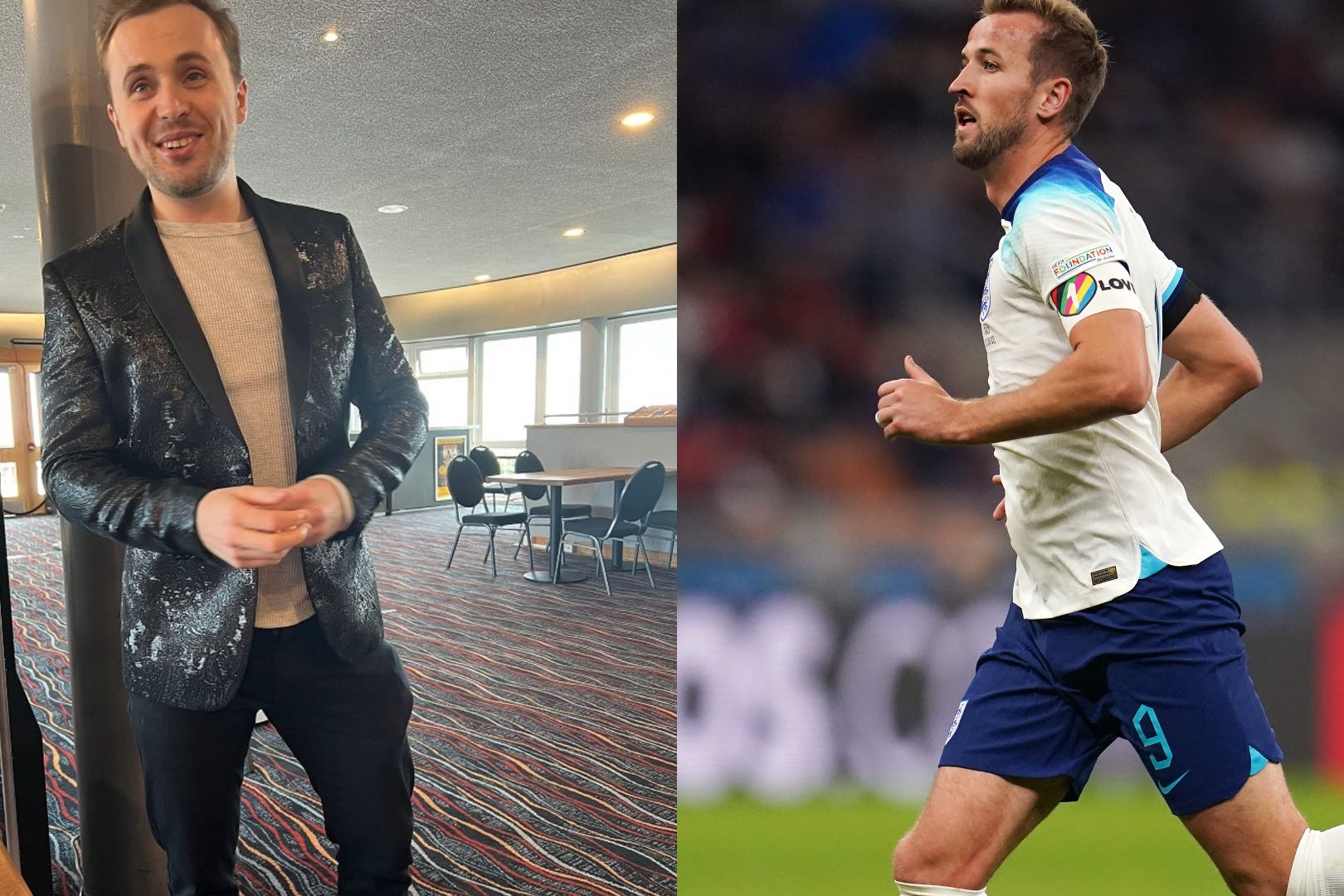UK ice hockey player hopes to wear OneLove armband after World Cup u-turn
Zach Sullivan, who plays for Manchester Storm, is a member of the LGBTQ+ community.

Your support helps us to tell the story
From reproductive rights to climate change to Big Tech, The Independent is on the ground when the story is developing. Whether it's investigating the financials of Elon Musk's pro-Trump PAC or producing our latest documentary, 'The A Word', which shines a light on the American women fighting for reproductive rights, we know how important it is to parse out the facts from the messaging.
At such a critical moment in US history, we need reporters on the ground. Your donation allows us to keep sending journalists to speak to both sides of the story.
The Independent is trusted by Americans across the entire political spectrum. And unlike many other quality news outlets, we choose not to lock Americans out of our reporting and analysis with paywalls. We believe quality journalism should be available to everyone, paid for by those who can afford it.
Your support makes all the difference.A professional ice hockey player is planning to wear the OneLove anti-discrimination armband dropped by England and Wales at the Qatar World Cup in support of “minorities who have been disappointed”.
The armband was set to be worn by the captains of several European nations to send a message against discrimination of any kind, but this decision was reversed just hours before England were due to kick off their World Cup campaign against Iran after FIFA threatened to issue a yellow card to any player wearing one.
The reversal also came just days after FIFA president Gianni Infantino’s pre-tournament speech in which he declared “today I feel gay” and “today I feel (like) a migrant worker” referencing the discrimination his family faced as Italian migrants in Switzerland.
Ice hockey player Zach Sullivan, from Reigate in Surrey, is a member of the LGBTQ+ community and plays for Manchester Storm.
While Sullivan admits British ice hockey will not have as big an impact as the World Cup, he is trying to track down one of the armbands to wear during his season with Storm in the Elite Ice Hockey League.
“I think it is really important for the minorities that the OneLove armband represents, that there is a sport, a global sport, that supports their ongoing fight and struggle for equality,” the 28-year-old told the PA news agency.
“I fully understand that me wearing it in British ice hockey will not have the same effect as someone wearing it on the world’s biggest sporting stage, but it is the least I can do, to show that minorities that have been disappointed, let down, and made to feel worthless, once again, have somewhere to go if they want to be involved in sport.
“Ice hockey certainly is not perfect, but as a whole we are making strides to make our sport a more inclusive and accepting space, with actual actions, not just empty words.”
The 2022 World Cup is taking place this winter in Qatar, a country where same-sex relationships are criminalised.
A joint statement from the FAs involved in the OneLove campaign said: “as national federations, we can’t put our players in a position where they could face sporting sanctions including bookings, so we have asked the captains not to attempt to wear the armbands in FIFA World Cup games.
“We were prepared to pay fines that would normally apply to breaches of kit regulations and had a strong commitment to wearing the armband.
“However, we cannot put our players in the situation where they might be booked or even forced to leave the field of play.”
Germany meanwhile earned praise for their protest against FIFA over the OneLove anti-discrimination armband – the players covered their mouths for the team photo before their opening World Cup defeat against Japan on Wednesday, to highlight that they feel silenced by the game’s global governing body.
Sullivan added that he believes the situation was a missed opportunity for teams to make a statement, and labelled the U-turn on the armband as “embarrassing”.
“FIFA turning around and saying ‘no you’re not allowed to wear these’ changed it from being a token gesture to actually being something quite big,” he said.
“The European countries actually had an opportunity to go ‘you know what, FIFA have told us not to wear this – we’re going to wear it anyway’. It would’ve been something that was noticed on a global stage.
“For the captains and FAs to turn around and say ‘no we’re not going to do this’ for a yellow card, you’re essentially saying that human rights are worth talking about unless I’m going to get a yellow card.
“That’s how much human rights are worth talking about and that’s just embarrassing in my opinion.”